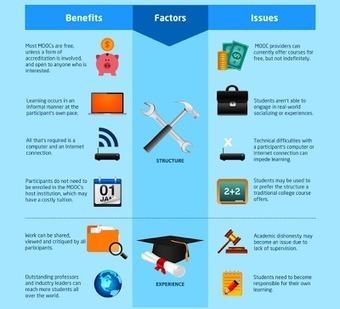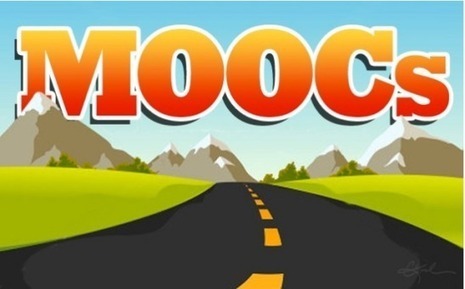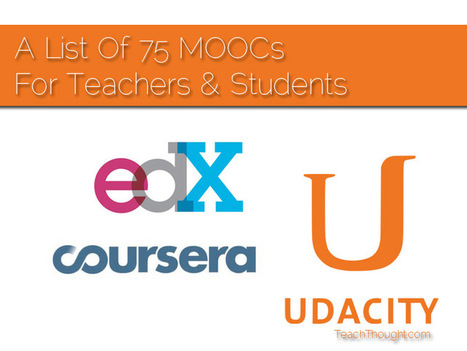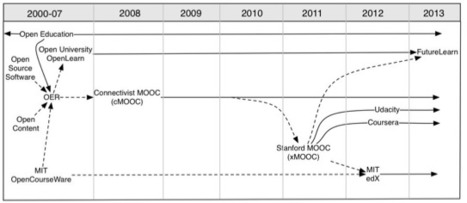You only have to know one thing: you can learn anything
Get Started for FREE
Sign up with Facebook Sign up with X
I don't have a Facebook or a X account

 Your new post is loading... Your new post is loading...
 Your new post is loading... Your new post is loading...

Becky Roehrs's curator insight,
November 7, 2014 10:16 AM
We don't have high dropout rates for online college courses-but for free courses, what is the motivation to complete a course? Not all online environments are the same-credit online classes are very different from MOOC's!

Mickael LAURE-de BOUILLE's curator insight,
April 29, 2014 4:31 AM
MOOCS make part of 2014's trends in learning approaches! Nevertheless it's crucial to keep in mind few key success factor in the developing stage

Dr. Susan Bainbridge's curator insight,
August 22, 2013 4:55 AM
Extensive listing of available MOOCs. 
Gabi Witthaus's curator insight,
August 22, 2013 9:36 AM
Via Susan Bainbridge - extensive listing of available MOOCs. |

Peter B. Sloep's comment,
March 25, 2013 9:57 AM
You are right, pity that cMOOCs have not been included as their inclusion would have significantly widened the range of possible outcome scenarios. Still, in defence of the authors, I don't think they set out to cover cMOOCs as well as these are not seen as threatening to HE as it is now.

verstelle's curator insight,
March 26, 2013 3:58 PM
Thorough report from the Brittish JISC/CETIS. Many of the reported is not new for those who follow MOOC developments but it is worth reading e.g. for these conclusions:
"...there is a significant question for higher education institutions to address: are online teaching innovations, such as MOOCs, heralding a change in the business landscape that poses a threat to their existing models of provision of degree courses? [...] If this is the case, then the theory of disruptive innovation suggests that there is a strong argument for establishing an autonomous business unit in order to make an appropriate response to these potentially disruptive innovations" |









![Massive Open Online Courses [Infographic] | omnia mea mecum fero | Scoop.it](https://img.scoop.it/4QphUXvJ9W8kcuVdj1CekDl72eJkfbmt4t8yenImKBVvK0kTmF0xjctABnaLJIm9)





![The World of Massive Open Online Courses [Infographic] | omnia mea mecum fero | Scoop.it](https://img.scoop.it/8dIjFDNUq66ee2s13fpaKTl72eJkfbmt4t8yenImKBVvK0kTmF0xjctABnaLJIm9)





